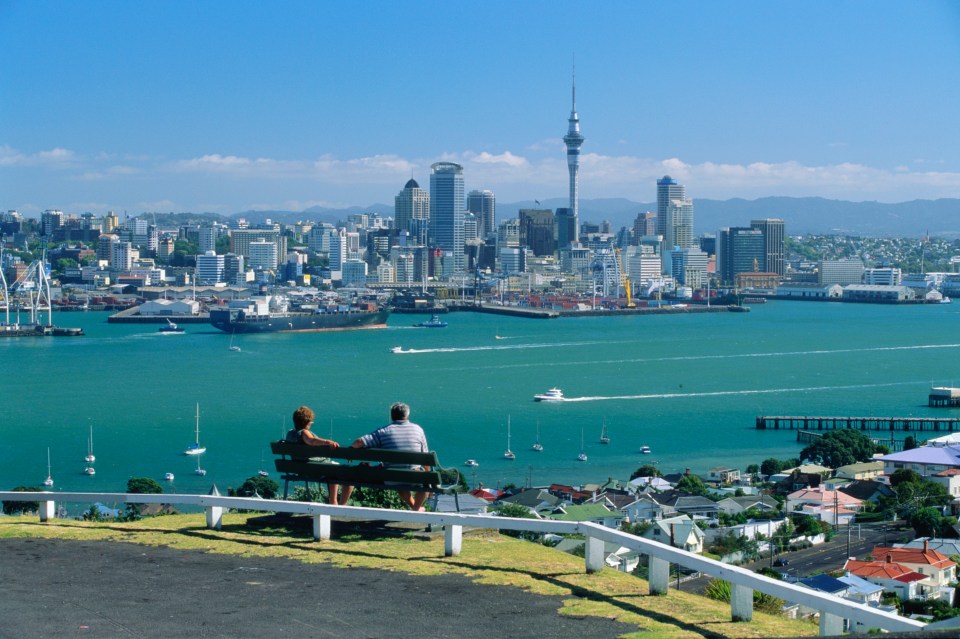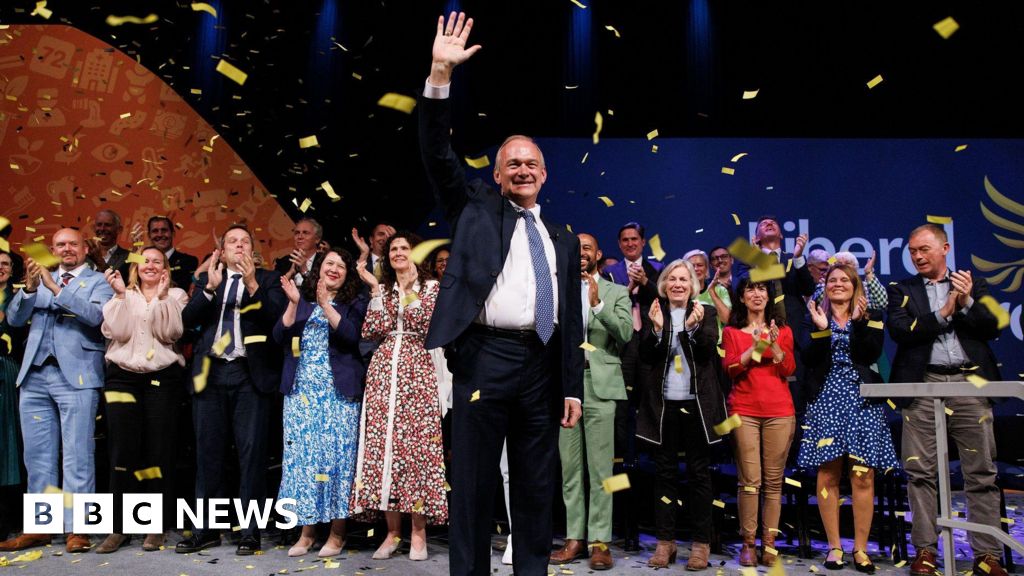This is an audio transcript of the FT News Briefing podcast episode: ‘How extremist settlers in the West Bank became the law’
Sonja Hutson
Good morning from the Financial Times. Today is Friday, September 27th, and this is your FT News Briefing. The Labour party might U-turn on a major policy plan. And Saudi Arabia is admitting defeat on its oil price goals. Plus, the FT’s Allison Killing explains how Palestinians in the West Bank are experiencing more violence. I’m Sonja Hutson, and here’s the news you need to start your day.
[MUSIC PLAYING]
UK chancellor Rachel Reeves is thinking about scrapping her plan to claw back taxes from wealthy foreigners. That’s what officials said yesterday. You see, foreigners who live in the UK but say they have permanent homes abroad, also known as non-doms, benefit from some juicy tax perks. And Reeves promised to get rid of this. She said the move would raise £1bn each year, but now it’s looking like the numbers maybe don’t add up. Tax advisers are warning that wealthy residents are considering leaving the UK. No final call has been made yet, but Reeves was counting on the funds from the plan for Labour’s budget. That will be announced at the end of next month.
[MUSIC PLAYING]
Saudi Arabia seems to be giving up on its unofficial goal of $100 for a barrel of oil. For a while now, the world’s largest oil exporter has cut production in order to boost the price. But it hasn’t worked. Brent crude has averaged just $73 a barrel this month. So yesterday, Saudi Arabia said it was sticking with a plan to resume normal production on December 1st. Here to explain is Tom Wilson. He covers energy for the FT. Hey, Tom.
Tom Wilson
Hi.
Sonja Hutson
So first, can you give me some context about why Saudi Arabia cut oil production in the first place?
Tom Wilson
Yeah. So Saudi Arabia and the other members of the Opec+ cartel have often increased or decreased supply to meet the demand of the market. And since about November of 2022, the group has basically implemented a series of cuts for reduced production. And the main objective there was to try and maintain a period of higher prices. And that was particularly important for Saudi Arabia because under Crown Prince Mohammed bin Salman, the country’s embarked on a really ambitious economic reform program with a lot of huge megaprojects that need funding. And in order to pay for those projects, it’s much better for Saudi Arabia to have a higher price.
Sonja Hutson
But, you know, oil prices have not reached that unofficial $100 goal. And in fact, they’re very far from that. So why is Saudi Arabia in particular thinking about sticking with the original plan to increase production?
Tom Wilson
Look, look, you’re right. So we know our prices averaged about $99 a barrel in 2022 and then have been falling since. And really, Saudi Arabia and other Opec members have been trying to play a game of catch-up where they’ve kept either increasing or extending production cuts in an attempt to keep prices higher. And at the same time, you see the big increase in production from other parts of the world. So non-Opec+ producers like the US, Canada and Guyana have basically neutered the impact of the Saudi cuts. And the sense in the last few weeks in Riyadh is a growing recognition that basically enough’s enough. Well, let’s start to bring that supply back. While the kingdom remains, you know, incredibly dependent on the oil price for revenue, it does have other options available to it. And I think they really didn’t like this narrative that it developed in the market that they had effectively backed themselves into a corner and got to a position where they would never be able to bring back that supply.
Sonja Hutson
Yeah. So how have markets reacted to this shift in Saudi thinking?
Tom Wilson
There was a huge market reaction yesterday. So oil prices dropped about 2 per cent. Prices of the major oil producers dropped. And I think what that really showed is how jittery the market is about the strength of future demand. I mean, effectively, a shift in Saudi thinking is relatively subtle. I mean, they had already said that they would bring back production from the 1st of December. The problem was that the market didn’t really believe them. Saudi had delayed those production increases before, and many people in the market thought it would happen again. So this confirmation that Saudi is actually committed to starting to increase production again, that’s what could put the cat among the pigeons. And that is what has pushed the price down.
Sonja Hutson
Tom Wilson is the FT’s senior energy correspondent. Thanks, Tom.
Tom Wilson
Thanks very much.
[MUSIC PLAYING]
Sonja Hutson
The private credit boom doesn’t look like it’s slowing down anytime soon. Citigroup announced yesterday that it’s teaming up with asset manager Apollo to finance over $25bn worth of loans. That money will go to private equity groups and low-rated companies who might have trouble getting a more traditional bank loan. Citi has gotten some pretty serious private credit FOMO since asset managers started poaching some of its most lucrative customers. That’s because traditional banks like Citi have typically avoided riskier corners of the market. The loans will trickle out over the next few years, but Citi and Apollo hoped to hit $5bn in year one.
[MUSIC PLAYING]
Violence against Palestinians in the West Bank has been on the rise since Prime Minister Benjamin Netanyahu formed a coalition with far-right parties about two years ago. That’s according to data from the conflict-monitoring group Acled. And that violence has gotten even worse since Hamas attacked Israel last October. It’s part of what locals and activists say is a systematic campaign aimed at driving Palestinians off their lands. The FT’s visual investigations team looked at how this is playing out in one village called At-Tuwani. Alison Killing led that investigation and she joins me now. Hi, Alison.
Alison Killing
Hi there.
Sonja Hutson
So before we get into what you found in this investigation, can you lay out for folks just how the West Bank is set up?
Alison Killing
Sure. So the West Bank was occupied by Israel after the 1967 war. And it’s an area that the Palestinians see as the heart of a future Palestinian state. Under the Oslo Accords in the 90s, it was divided into these areas A, B and C. And we’ve been looking at area C, which has been the focus of settlers’ efforts to seize Palestinian land. So there’s about 179 Israeli settlements through that area. And those settlements are deemed to be illegal by the UN and by most countries. But the Israeli government is generally supporting them by, for example, building roads. And they provide services like water and electricity.
Sonja Hutson
And how has the violence escalated in this area since Hamas’s attack last October? I mean, what kind of examples have you seen?
Alison Killing
After the Hamas attack on October the 7th, the violence soared and it also became more extreme. So the FT’s special investigations team spoke to more than 20 villagers and Palestinian, Israeli and international activists about the violence that locals face, both from settlers and from the Israeli state. And we reviewed hours of footage of incidents, including those with firearms. We obtained a video from October the 13th of last year. So right after the Hamas attack. And a settler from the nearby settlement of Ma’on has come into At-Tuwani and he’s armed with a rifle. And a Palestinian man from the village called Zakariya Adra, he goes to confront the settler. We see the settler then go up to him and he pushes him back. And then suddenly he shoots him at point-blank range. And Zakariya collapses.
[AUDIO CLIP OF PEOPLE SCREAMING]
He’s very seriously injured. Throughout this shooting, there’s an Israeli soldier that we can see who’s standing in the background, and he’s not doing anything. He’s just standing there watching.
Sonja Hutson
And is that unusual for soldiers to be involved or witness this kind of violence?
Alison Killing
The big thing that the people that we spoke to said had changed since October the 7th last year is that thousands of settlers have been called up to serve in the Army in the West Bank. That’s because a lot of Israel’s regular army are now deployed to Gaza or to the border with Lebanon. And as a result, these settlers have been granted new enforcement powers, including the ability to arrest people, for example. So Acled, this international conflict-monitoring group, they noted that aggressive acts are now increasingly carried out by people who have this quasi-military status. So shortly after October the 7th, this new military style observation post was set up on Palestinians’ villagers land, which was close to At-Tuwani. The villagers that we spoke to tell us that now there were men in uniform who sat there around the clock. And one day these men, they started cutting the branches of fig trees and grape vines, which belong to the Hureini family. And one man from that family, Mohammad, went to challenge them and they threatened him with guns. And then they followed him back to the village.
[AUDIO CLIP OF GUNSHOTS]
And in the video that we’ve seen, they’re standing on top of a small hill between buildings and they’re shooting down into the village with some of the Palestinian villagers standing below.
Sonja Hutson
Allison, what have you heard from the Israeli military — you know, the Israel Defense Forces — about your investigation?
Alison Killing
So we put our findings to the IDF. They came back and they said that investigations had been opened by the Israeli police into both of the incidents in At-Tuwani that we’ve described. They said that they couldn’t provide details of an ongoing inquiry. But when they were commenting on the shooting of Zakariya, they said that a real-time examination revealed that the published video does not embody the incident in its entirety, and there are therefore no grounds to pursue further proceedings against the soldier.
Sonja Hutson
Just taking a step back, what do you think that this all tells us about how Israel views its relationship with Palestinians living in the West Bank? And how is that changing the situation on the ground there overall?
Alison Killing
Yeah. So Israeli society has shifted to the right a lot over the past couple of decades. And with that, support for the settlements has grown. And that’s become more extreme since Netanyahu returned to power in 2022. With his coalition, which is dependent on two far-right parties led by ultra nationalist settlers. So we spoke with a lawyer, an analyst called Diana Buttu, who previously advised the Palestinian president. And she just said, you know, once Palestinians lose their land, there’s no way to get it back. She said, once you’re gone, you’re gone. There’s just no turning back.
Sonja Hutson
Alison Killing is a senior reporter on the FT’s visual investigations team. Thanks so much, Alison.
Alison Killing
Well, thank you.
[MUSIC PLAYING]
Sonja Hutson
You can read more on all these stories for free when you click the links in our show notes. This has been your daily FT News Briefing. Check back next week for the latest business news. The FT News Briefing is produced by Neve Rowe, Fiona Symon, Kasia Broussalian, Marc Filippino and me, Sonja Hutson. Our engineer is Joseph Salcedo. We had help this week from Sam Giovinco, Breen Turner, David da Silva, Michael Lello, Peter Barber and Gavin Kallmann. Our executive producer is Topher Forhecz. Cheryl Brumley is the FT’s global head of audio. And our theme song is by Metaphor Music.






































































































































You must be logged in to post a comment Login